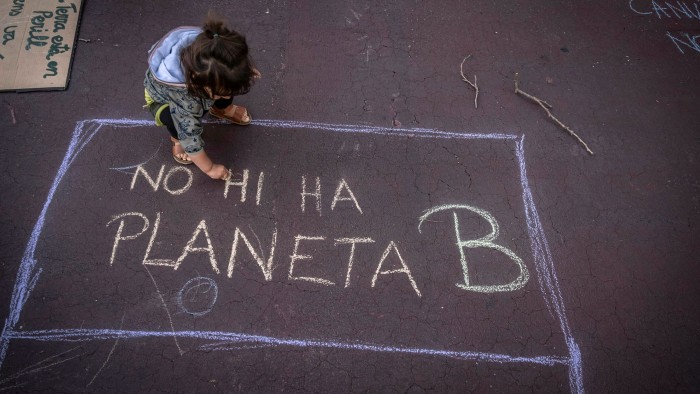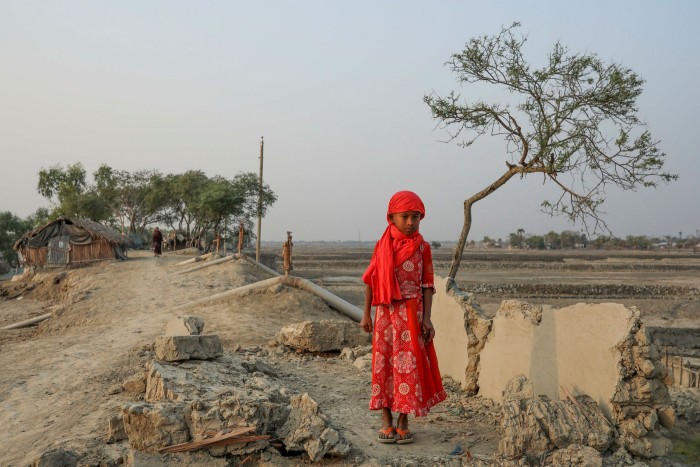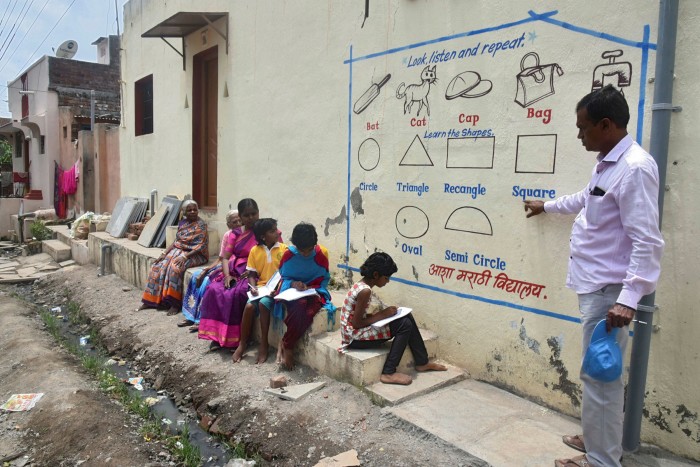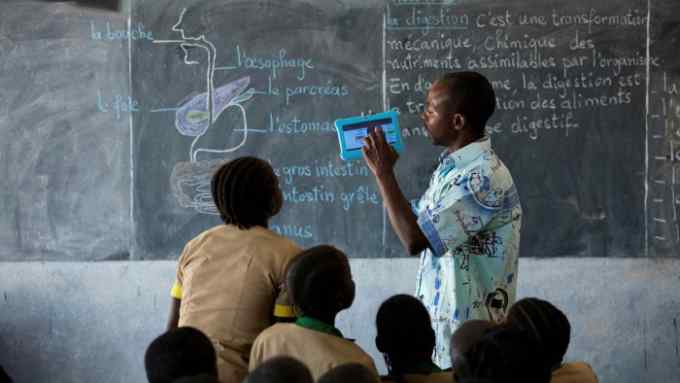Why Covid means children’s health must be at the centre of all policies

Roula Khalaf, Editor of the FT, selects her favourite stories in this weekly newsletter.
Despite international commitments under the UN Convention on the Rights of the Child and through Sustainable Development Goals (SDGs), no country is doing enough to protect children’s health and wellbeing. Children are suffering from the ill effects of the climate crisis; inequality and poverty; disease and malnutrition; inadequate housing, social protection and education; and harmful commercial marketing.
These difficulties have been compounded by Covid-19. Children have faced disruption to education, essential services, and protection. Mental illness, an increasing concern among children before the pandemic, has been exacerbated by the isolation, uncertainty, and loss so many children are confronting. Domestic violence has increased, placing many children in dangerous situations.
The Lancet, the British medical journal, has reported disruptions to food systems, interrupted humanitarian responses, strained health systems, and increased risk of child malnutrition. A World Health Organization survey found disruptions to routine immunisation, placing children’s health at serious risk. Schools have been shut for extended periods. The effects on children’s health and wellbeing are likely to last decades unless governments can mitigate these harms proactively.
The WHO-Unicef-Lancet Commission report, A Future for the World’s Children? (February 2020), outlined the dire challenges facing today’s children and adolescents. The commission called for a global movement to tackle these threats and place children’s needs at the heart of all policies. The pandemic has made this call all the more urgent.
The Children in All Policies 2030 (CAP-2030) advocacy group aims to implement the commission’s recommendations, promoting evidence-based, practical, and creative solutions, and building networks committed to children’s health. CAP-2030 has partnered with organisations in nine countries to implement innovative programmes tailored to each context. A global response is also necessary to meet cross-border challenges, such as climate change and commercial marketing.
The pandemic has made it apparent that many countries have underfunded public health, social safety nets, and preventive medical infrastructure — including measures for children. We need to address the burden of child ill-health and unequal access to healthy environments and preventive and curative care. Early interventions in childhood produce profound benefits extending into adulthood. However, a Unicef report found high-income countries allocated a mere 2 per cent of their Covid fiscal stimulus for the support of children.
CAP-2030 is working to support and equip governments and others to find solutions for their specific contexts.

In Senegal, the Institute of Social Paediatrics will lead an initiative on the “First 1,000 Days” of a child’s life, advocating for resources to protect and promote health during this sensitive period, and sensitising families and communities.
In Ghana, the Center for Learning and Child Development will mobilise stakeholders to place children at the centre of country’s pursuit of SDGs.
Similarly, the Indian Institute for Human Settlements will lead a programme of work on children’s health, housing, and social protection, ensuring entitlements for those families supported by informal workers.

But it is the climate crisis that represents the single greatest threat to children’s health and wellbeing. Unchecked carbon pollution risks making many parts of the world uninhabitable within the lifetimes of children alive today, and air pollution is already having severe impacts on their health, increasing the risk of acute respiratory and cardiovascular disease.
And it is children that have led the way in advocating for action to address the climate emergency. The School Strike for Climate movement has mobilised millions globally, emphasising the need for children’s voices to be heard and acted upon. CAP-2030 will work to amplify the voices of children on this issue.
Another key risk to children’s health is harmful marketing. Children are frequently the targets of abusive marketing campaigns by companies promoting unhealthy foods and beverages, online gambling, alcohol and tobacco — products that increase the risk of diabetes, heart disease, and other non-communicable diseases. The negative impacts of marketing campaigns on children’s mental health also need more attention. Constant images of idealised body types and unattainable lifestyles can have dangerous effects on children’s wellbeing.
CAP-2030 is working to define the nature of the emerging threat of harmful commercial marketing and support regulation to protect children.
All of these challenges require a global response rooted in local needs and cultures — and governments must work together, with communities, families and children, to invest in future generations.
Multiple summits are taking place this year — platforms for global co-operation that must account for the plight of children and future generations.
For example, at the Tokyo Nutrition for Growth summit, in December, meaningful actions must be agreed to end child malnutrition. The voices of children must be listened to at the COP26 conference on climate, in November. Tangible plans to achieve universal quality education must be made at the Global Education Summit, later this month. These opportunities cannot be missed if the SDGs are to be met.
The health and wellbeing of the world’s children — the future of our shared endeavour on this planet — depend on placing children at the centre of all policies.
Helen Clark served as prime minister of New Zealand from 1999 to 2008. She was previously administrator of the UN Development Programme. She is co-chair of Children in All Policies 2030.
Awa Marie Coll-Seck is Senegal’s minister of state and chair of the Extractive Industries Transparency Initiative National Committee. She is co-chair of Children in All Policies 2030.
Sarah Dalglish is a public health researcher and the executive director of Children in All Policies 2030.
Bethany Jennings is a social scientist and consultant for Children in All Policies 2030.

Comments